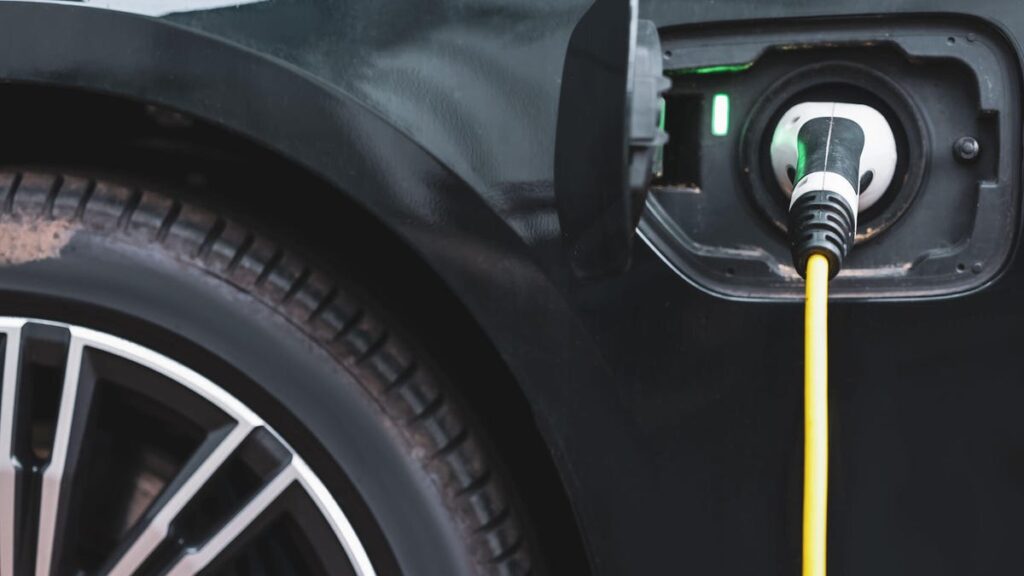Taking your first electric car home can be exciting, but it’s also a major lifestyle adjustment. Your biggest question may be, where and how do I charge it?
If you want to install your own electric car charger at home, you may be wondering how to do it.
Depending on the type of vehicle you have, the type of charger you want, and how fast you want it to charge, you have a lot of options. Some of these options are as simple as plugging in any device, but some faster charging options will require the help of an electrician.
Here’s everything you need to know about installing the right electric vehicle charger.
What kind of electric vehicle charger do you need?
First things first: Figure out how much time you’ll be driving your electric vehicle and how quickly you’ll need to charge it at home. How long is your commute? Do you get home every night with your electric car battery drained or only 30% drained?
“If you drive a lot, you may need to fully charge your vehicle overnight,” said Kristin Larson, CEO of Southwest Industrial Electric, an electrical contractor in Los Angeles.
Answering these questions can help you determine whether a Level 1 or Level 2 charger is right for you.
-
Level 1 charger It is a standard plug that can be plugged into any outlet in your home. This can give your vehicle about 5 miles of range per hour of charge, although that number depends on your charger, vehicle, and many other factors.
-
Level 2 charger Provides faster charging output and can travel approximately 25 miles per hour of charging. This may charge the battery from 0% to 100% overnight.
If your daily driving needs are less than 20 miles (or if you have a plug-in hybrid electric vehicle), a Level 1 charger may be enough, Larson said, but for anything else beyond that situation, you may want to consider a Level 2 charger.
In terms of brand, there are many options for the actual charger you might buy. They work essentially the same way, but differ in price and aesthetics, Larson said.
Do you need an electrician to install an electric vehicle charger?
If you choose a Level 1 charger, you most likely won’t need an electrician. All you need to do is purchase the appropriate charging cable for your vehicle and plug it into the nearest wall socket.
For Level 2 chargers, Larson says, you’ll most likely need to call a professional. One exception is if you already have a special 240-volt outlet in your garage (the kind typically used for stoves or dryers) and simply plug the Level 2 charger into it.
But otherwise, if you’re installing a Level 2 charger from scratch, it’s best to hire an electrician, Larson advises.
What are the steps to install an electric vehicle charger?
If you need an electrician to set up your charging, you’ll want to call an electrician (or electricians) first and have them provide you with a free installation estimate.
“At this point, most electricians know how to [it]it’s not a difficult job at all,” Larson said.
An electrician will come to your home and evaluate your electrical panel. Larson said this will determine how much power your home has available for EV charging and, to some extent, what kind of chargers you can install.
Once you know which type of charger is right for your home, your electrician will also help you decide how and where to install it. Keep in mind, Larson says, that the farther away the charger is from the electrical panel, the more expensive it will be to install.
Finally, you can give the green light to your electrician and install the charger.
How much does it cost to install an electric vehicle charger?
This depends on the type of charger you buy and the installer you hire.
Larson said the average electrician’s labor rate is about $100 an hour and takes three to four hours. This means you should budget about $400 for installation. For the Level 2 charging device itself, the cost is typically $400 to $600, depending on the brand. Total installation cost is approximately $1,000.
Sometimes, your existing electrical panel simply won’t support adding a charger. In that case, Larson said, you may need to spend thousands of dollars upgrading the electrical panel before you can install the charger.
So before you buy an electric car, it’s a good idea to get an electrician to give you an estimate so you know what you’re getting into and whether it ends up being a bigger project than you expected.

